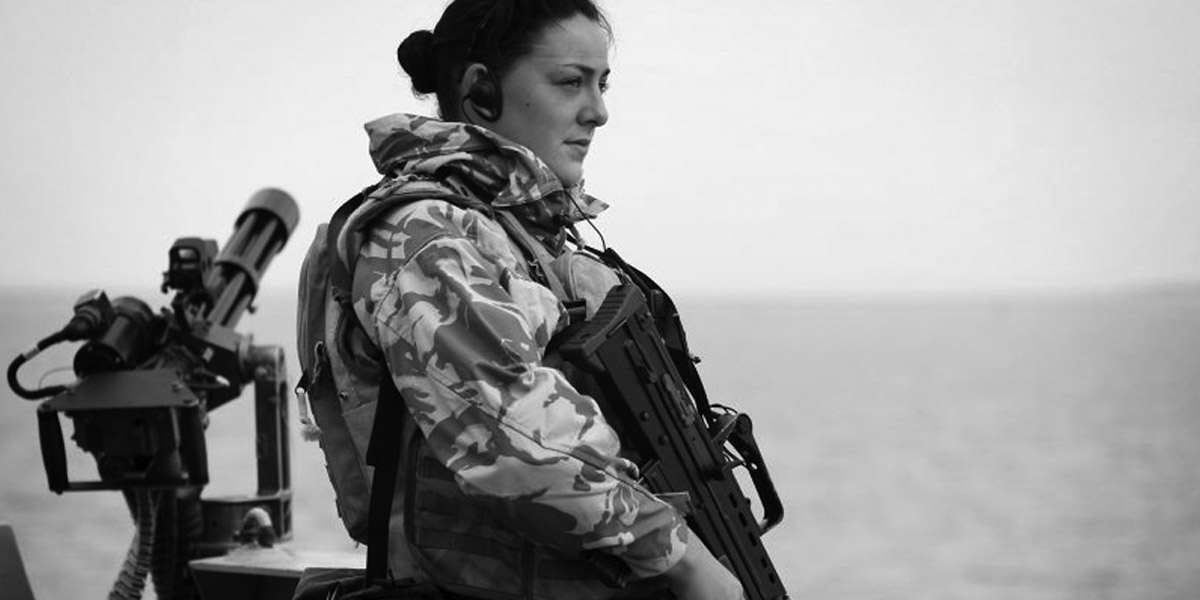Women in the army: Fighting through the armoured glass ceiling
Last week the head of the British army, General Sir Peter Wall, boldly suggested that the army may allow women to serve in frontline combat roles in the near future. This is a far cry from the army’s traditional stance...
Last week the head of the British army, General Sir Peter Wall, boldly suggested that the army may allow women to serve in frontline combat roles in the near future. This is a far cry from the army’s traditional stance and it could be a turning point in the fight for female emancipation within the army.
Sex discrimination in the workplace has been illegal for almost forty years. Australia, Canada, France, Germany, Israel, Brazil, South Korea and even the United States of America have had the nouse to allow women into the infantry. And yet the British army, which in 2013 employed roughly 168,080 people of which 16,450 are women, continues to maintain that there are some roles that women, based on their gender alone, are not fit for.
This is despite saying on their recruitment website: “Men and women have an equal part to play in society – and they have an equal part to play in the army too”.
An oft-cited defence of this policy is that women simply aren’t as fit and strong as men. However, if women do reach the same standards this argument becomes obsolete. The current officer fitness standards require men to do 44 but women to do 21 press-ups in two minutes. We should set uniformly high standards. Some women will meet those standards, some won’t. Some men will, some won’t. But why stop women if they can? Set the same standard, then let people meet it.
The US army officer, Captain Katie Peronio, who developed long-lasting leg and spinal injuries after combat operations, argues that the long-term physical impact on women could be more detrimental than on men. However there’s nothing to suggest that injuries of this kind are worse for women. Studies on male conscripts in Finland warn that men are just as vulnerable to these types of injuries.
Canada opened all combat roles to women as far back as 1989 (except in submarines, which followed a few years later). The women’s progress has been monitored and researched for decades. Not only are long term adverse effects minimal, but women have performed as well, if not better in these roles.
The last review of British army policy was held in 2010 and in fact found that women were capable of meeting the physical standards required for close combat. However, it continues to uphold the ban on the grounds that women sleeping, eating and fighting with men would upset team cohesion. These objections mirror those used to prevent the desegregation of black units in the US Army all those years ago, as well as being the premise for the “don’t ask, don’t tell’ policy on gay men. Not great acts to follow.
So what about a man feeling compelled to rescue a ‘damsel-in-distress’, and in doing so compromising the safety of his unit?
Raising issues relating to chivalry does a disservice to the standards of discipline and training expected from the British army. It is a world-class institution and deserves to be judged by those standards. Canadian men and women in infantry units sleep, eat and work together, and they overcome any logistical challenges by good old-fashioned common sense. Are the British too hamstrung to do the same?
This is also a question of women’s rights to career opportunities and progression in the workplace, which have been fought for for years in the civilian arena but have largely been neglected in the army. Time for it to catch up.
96 per cent of jobs in the RAF are open to women (compared to 67 per cent in the army), with only close combat roles being barred to them, so it doesn’t come as a surprise that the RAF has the highest ranking woman ever to be in the British military: Air Vice-Marshal Elaine West. West herself defends the current policy and doesn’t see it as a barrier to a woman one day being appointed chief of the defence staff.
Research, however, shows that women officers currently experience an ‘armoured glass ceiling’ in terms of career progression. The evidence suggests that we will only see a female chief of defence staff when women in combat roles become the norm.
General Sir Peter Wall’s comments offer a far more promising view, buttressing the argument for women on the frontline with another incentive – that of increasing female recruitment. But this won’t wash until we end the exemption of the armed forces from the Sex Discrimination Act.
Thankfully, it seems European law is catching up. And now the higher echelons of the army may be starting to come round, too, it’s time to push this policy over the finish line. A few more voices would help a great deal, so let’s argue the case for gender equality in the army – a cause worth fighting for.
